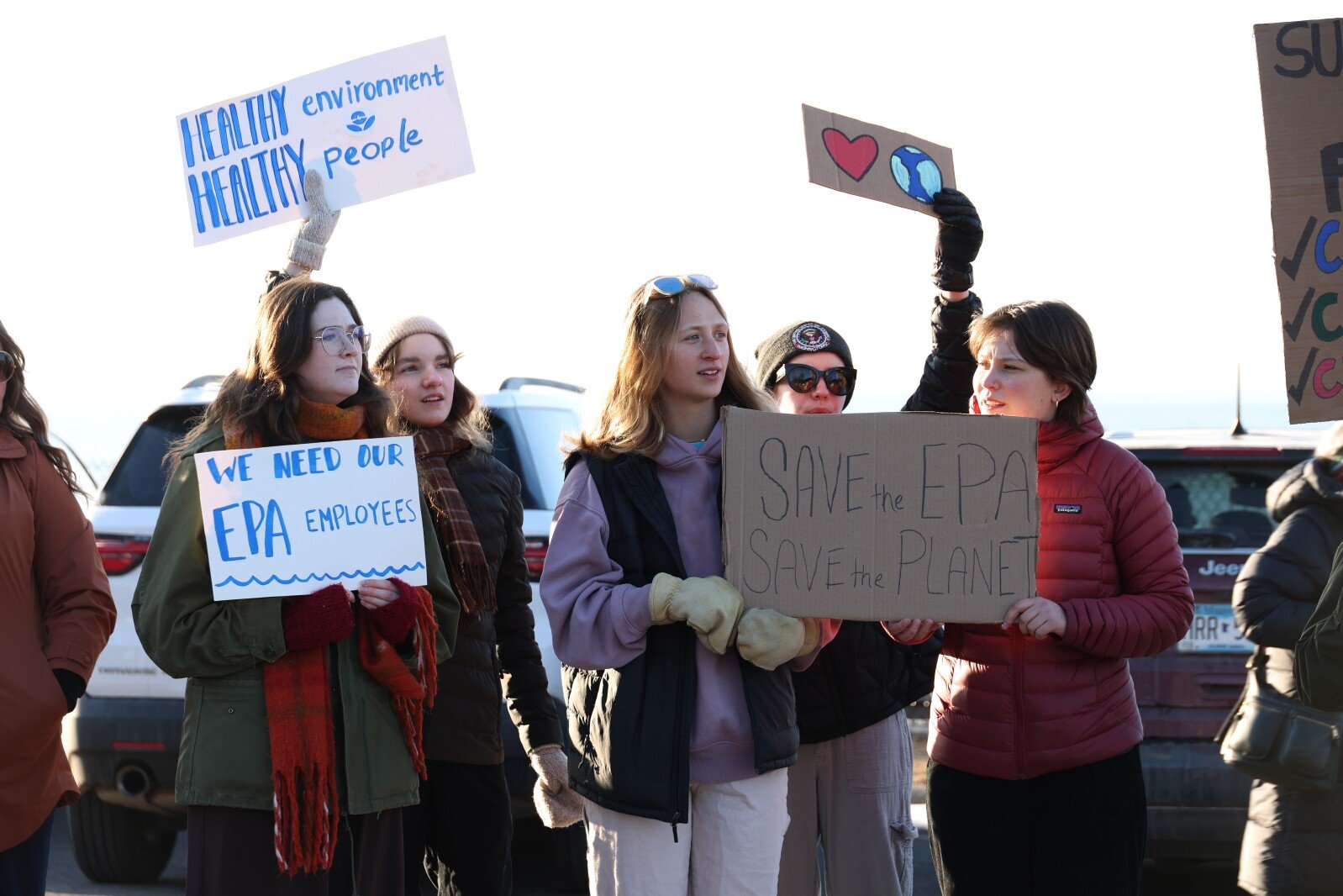DULUTH — Twin sisters Mauren and Zoe Pierson initiated the Climate Club at Ordean Middle School during sixth grade, but the COVID-19 pandemic soon disrupted their efforts. Overwhelmed by the impacts of climate change and the increasing prevalence of greenhouse gas emissions, Mauren, now a senior at Duluth East High School, found herself withdrawing from the club. She noted, “When kids, and just people in general, get nervous about climate change, the first thing they do is get paralyzed and stop and not do anything. It’s easier to block it out than to take actual action.”
This sentiment reflects a widespread issue known as “climate anxiety” or “climate grief” among youth. A 2021 study published in The Lancet revealed that nearly 60% of young people expressed feeling “very” or “extremely” worried about climate change. Furthermore, over 45% reported that these worries negatively impacted their daily lives.
A separate study from the University of Minnesota found that about 75% of mental health professionals in the state are concerned about the mental health effects of climate change on clients, with more than half observing signs of anxiety and stress linked to climate issues. Alarmingly, over one-fifth of these professionals reported instances of suicidal thoughts and attempts associated with climate anxiety.
However, moderate levels of climate anxiety can motivate some individuals to engage in climate action, such as participating in social movements and advocating for policy changes. A Yale and George Mason University study highlighted that Americans experiencing climate-related psychological distress often become more involved in climate activism. The study stated, “People experiencing such distress may benefit from resources to support mental health and engagement with climate change.”
For Mauren, turning her anxiety into advocacy became a necessity. After recognizing that avoiding the Climate Club was only a temporary escape, she resolved to take action. “Walking into my junior year, I realized that I can’t just keep doing this anymore. I want to take action, and that helped me tear down that wall,” she said. Consequently, she started the Climate Club at Duluth East High School, where the group has begun advocating for solar energy installations on school district property, a project originally suggested during their middle school days.
The Climate Club’s activities have expanded beyond school meetings. In late March, members participated in three consecutive events: they addressed the Duluth City Council regarding the proposed sale of Allete, Minnesota Power’s parent company; expressed support for the U.S. Environmental Protection Agency’s laboratory in Duluth; and held their weekly meeting at a local coffee shop—all before the school day began.
Kate Yapel, also a senior at East, described climate anxiety as a “looming presence” but acknowledged that her involvement in the Climate Club has provided access to a community of like-minded individuals and potential solutions. She stated, “I can coexist with it. I think it’s always there for me, but it’s something that is more manageable now that I’ve gotten to have the experiences I’ve had.”
While engaging in climate action is beneficial, it does not substitute for professional mental health care, especially for those facing severe stress. The Yale and George Mason study indicated that 7% of U.S. adults report serious psychological distress concerning climate change, underscoring the need for accessible resources to support mental health in the context of climate adaptation.
Shawna Weaver, author of “Climate Grief: From Coping to Resilience and Action” and adviser to the Climate Club, emphasized the importance of community involvement. She noted that small personal actions, like composting or biking instead of driving, can foster a sense of belonging and reinforce personal values. “We’re retraining our brain to be geared toward community and toward our own values,” Weaver explained.
Despite the challenges, Mauren and Yapel see hope among their peers. Approximately 75% of Climate Club members plan to pursue environmental science in college, including Mauren and Yapel, who are set to major in environmental science, management, and policy at the University of Minnesota next year. Yapel encourages others to engage in climate work, saying, “You’re going into a huge support system. Don’t be discouraged by the impact you alone have. Be motivated that your influence on other people will be really prosperous.”
Through activism, these Duluth students strive to transform their climate anxiety into a force for positive change, fostering both personal resilience and community engagement.



